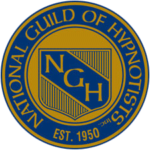
We need to remove cultural and personal biases when it comes to studying nature and in our search for cures. Psychogenic herbs and mushrooms hold promise, as do thousands of other plants and fungi. There’s a limited amount of research on psilocybin, however from what we have so far the results look promising.
As an herbalist and a proponent of the naturopathic philosophy to healing I encourage the research and legislative body to let go of dogma and explore what nature has to offer us. Used carefully and with respect, many substances, even toxic ones, can be used for healing.
Psilocybin, the nootropic compound found within psychoactive mushroom species, is showing promise in healing mental illnesses and to resorting lost cognitive function.
A study conducted by lead researcher Dr. Juan R. Sanchez and his team investigated psilocybin’s ability to bind certain receptors in the brain which stimulate healing and growth. Results of this study (published in Experimental Brain Research) showed that psilocybin’s effect on the mind vitalizes the reparation of damaged brain cells and is also highly effective in relieving depression and PTSD.
In this study, mice that were given a carefully calculated dosage of psilocybin showed little or no fear response. Mice given an excessive dose of psilocybin experienced a greater, more intense fear response than before, showing that if psilocybin is to be accepted as a medicine, it should be taken in careful doses.
Psilocybin has been categorized as a nootropic substance as it directly effects the health of the hippocampus, the center of memory, emotion, and the autonomic nervous system.
A healthy hippocampus is associated with an enhanced learning capacity as well as an efficient conversion of short term memories to long term memories thus, the psilocybin-induced brain cell construction in the hippocampus directly translates to a healthier, sharper brain.
In the treatment of addictions, psilocybin is theorized to work from three angles: biochemical, psychological, and transcendental/spiritual.
Biochemically, psilocybin disrupts the receptors in the brain that are thought to be responsible for reinforcing addictive behaviors.
Psychologically, it is thought to reduce cravings, increase a sense of one’s self-efficacy and increase motivation.
Transcendentally or spiritually, psilocybin is thought to increase one’s sense of purpose and a sense of oneness with a higher power, which have both been shown to be powerful protective factors against addiction.
“If our hypotheses are supported, this has the potential to revolutionize the fields of psychology and psychiatry in terms of how we treat addiction,” said
Sara Lappan, Ph.D., a postdoctoral scholar in the Department of Health Behavior.
“The proposition that psilocybin impacts cognition and stimulates hippocampal neurogenesis is based on extensive evidence that serotonin (5-hydroxytryptamine or 5-HT) acting on specific 5-HT receptor sub-types (most likely the 5-HT2A receptor) is involved in the regulation of neurogenesis in hippocampus,” … “The in vitro and in vivo animal data is compelling enough to explore whether psilocybin will enhance neurogenesis and result in measurable improvements in learning.” Dr. Sanchez-Ramos
Is the day that psilocybin becoming an acceptable form of treatment nearing?
Sources and additional reading:
Catlow, Briony J., Shijie Song, Daniel A. Paredes, Cheryl L. Kirstein, and Juan Sanchez-Ramos. “Effects of Psilocybin on Hippocampal Neurogenesis and Extinction of Trace Fear Conditioning.” PDF file. https://www.ncbi.nlm.nih.gov/pubmed/23727882
https://neurosciencenews.com/hallucinogens-cocaine-9485/
Classical hallucinogens as antidepressants? PDF
http://www.naturalnews.com/043214_psychedelic_mushrooms_psilocybin_brain_cells.html
https://www.snopes.com/news/2016/09/18/psychedelic-mushrooms-help-your-brain/
Psychedelic Mushroom Compound Found to Grow and Repair Brain Cells







